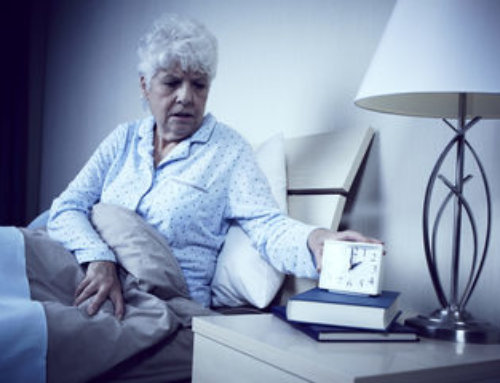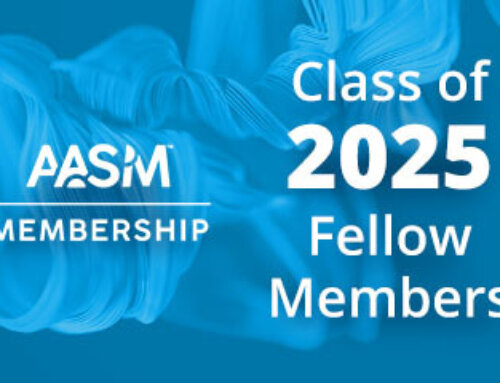Westchester, Ill. –A study in the Feb. 15 issue of the Journal of Clinical Sleep Medicine shows that a 40 minute protocol for the Maintenance of Wakefulness Test (MWT40) is superior to a 20-minute protocol (MWT20) at detecting excessive daytime sleepiness (EDS) in adults who may be unable to maintain wakefulness while driving. Yet results also suggest that the test may not be completely reliable when the strong motivation to keep a driver’s license enables individuals to overcome sleepiness during the test.
Forty-one out of the 164 subjects in the study (25 percent) fell asleep in one or more of the MWT40 trials; 10 participants (6.1 percent) fell asleep in all four trials. Out of 39 subjects with severe obstructive sleep apnea (OSA), 19 (48.7 percent) fell asleep in at least one of the trials. In a previous study of the MTW20 protocol, only five out of 54 subjects (9.2 percent) fell asleep in any of the trials.
According to the principal investigator Giora Pillar, M.D, Ph.D, with the Sleep Laboratory at Rambam Medical Center in Haifa, Israel, it is very difficult to objectively assess and quantify the capability of an individual to remain vigilant. Many of the study’s participants may have been highly motivated to overcome their sleepiness during the test in order to prevent their license from being revoked.
“It could be expected that the MWT40 will be superior to MWT20, but it is somewhat surprising that despite a strong drive to sleep, as in cases of severe apnea, people could pass the test by remaining awake in all trials,” said Pillar. “It emphasizes the strong effect of motivation.”
The study included 164 consecutive subjects with an average age of 50, who were referred to the Technion Sleep Lab between June 2006 and January 2007 by the Medical Institute for Driving Safety of the Ministry of Transportation. Participants who were suspected of suffering from EDS were referred for evaluation for their ability to maintain wakefulness for the purpose of renewal of their license to drive. Seventeen of the participants were professional drivers and one participant was an aviation pilot.
All subjects underwent a full-night polysomnograph followed by an MWT40, (four 40 minute long trials). During the MWT, participants were tnew to sit on a bed in a reclining position in a private, dimly lit room. Subjects were not allowed to perform any unusual action to maintain wakefulness, such as reading, talking, consuming caffeine or making repetitive movements. Trials were stopped if the subject fell asleep or if 40 minutes had passed.
According to Pillar, none of the participants who were receiving continuous positive airway pressure (CPAP) treatment failed the MWT 40; this information emphasizes the importance of treating OSA in preventing auto accidents caused by EDS. Pillar noted that findings of this study indicate that further research is necessary in order to determine a more efficient way to objectively assess an individual’s ability to remain vigilant while driving.
According to the American Academy of Sleep Medicine (AASM), OSA is a sleep-related breathing disorder that involves a decrease or complete halt in airflow despite an ongoing effort to breathe. It occurs when the muscles relax during sleep, causing soft tissue in the back of the throat to collapse and block the upper airway. This leads to partial reductions (hypopneas) and complete pauses (apneas) in breathing that can produce abrupt reductions in blood oxygen saturation. Brief arousals from sleep restore normal breathing but can cause a fragmented quality of sleep. Most people with sleep apnea snore loudly and frequently, and they often experience excessive daytime sleepiness.
AASM
practice parameters for the MWT recommend the 40-minute protocol and advise that the MWT be used when sleep clinicians require objective data to assess an individual’s ability to remain awake. The MWT should be used in association with the clinical history to assess the ability to maintain wakefulness.
The Journal of Clinical Sleep Medicine (JCSM) contains published papers related to the clinical practice of sleep medicine, including original manuscripts such as clinical trials, clinical reviews, clinical commentary and debate, medical economic/practice perspectives, case series and novel/interesting case reports. In addition, the JCSM publishes proceedings from conferences, workshops and symposia sponsored by the American Academy of Sleep Medicine or other organizations related to improving the practice of sleep medicine
AASM is a professional membership organization dedicated to the advancement of sleep medicine and sleep-related research. As the national accrediting body for sleep disorders centers and laboratories for sleep related breathing disorders, the AASM promotes the highest standards of patient care. The organization serves its members and advances the field of sleep health care by setting the clinical standards for the field of sleep medicine, advocating for recognition, diagnosis and treatment of sleep disorders, educating professionals dedicated to providing optimal sleep health care and fostering the development and application of scientific knowledge.
###




